A skin rash on the face can be a distressing ailment, affecting not just one’s health but also their self-esteem. It’s critical to understand that facial skin rashes are common and can occur due to various reasons including allergies, infections, or even stress. Most rashes are characterized by redness, itching, and sometimes, the development of bumps or blisters.
One may easily mistake a rash for a simple cosmetic concern; however, it is often a sign that something is amiss with your health or skincare routine. If you experience a facial rash, it’s important to pay attention to your body’s signals. While home remedies may provide relief for minor rashes, persistent or severe cases require professional medical attention to prevent complications and ensure proper treatment.
Causes of facial skin rash
Facial skin rashes can be attributed to a variety of causes, encompassing a broad spectrum of infections, allergies, autoimmune disorders, and even stress.
- Allergic Reactions: Certain beauty products such as cosmetics, detergents, and fragrances have the potential to cause an allergic reaction that manifests as a rash on the face. Irritation of the skin can lead to it becoming red, dry, and itchy. It is also possible for certain foods or medications to provoke allergic reactions.
- Infections: Facial skin rashes can be a result of infections caused by viruses, bacteria, or fungi. Examples of these infections include cold sores, impetigo, or ringworm. When the skin becomes infected, it may become red, swollen, and can develop blisters, acne, or bumps.
- Eczema: Eczema, also known as atopic dermatitis, is a chronic inflammatory skin condition that can cause facial skin rash. Symptoms include dry, itchy, and red skin that may develop into open sores or blisters.
- Psoriasis: Another chronic skin condition, psoriasis, can cause the formation of red patches and silvery-white scales on the face. It is usually accompanied by itching and may lead to soreness.
- Heat Rash: Heat rash is a common condition caused by blocked sweat ducts that result from excessive sweating in hot and humid conditions. Hoarseness, redness, and small bumps may be seen on the affected skin.
- Rosacea: Rosacea is a chronic skin disease that causes redness, bumps, and pimples on the face. Symptoms can worsen in response to triggers such as sunlight, alcohol, spicy food, or heat.
- Contact Dermatitis: Contact dermatitis is an allergic reaction that occurs when the skin comes in contact with certain substances like poison ivy, nickel, or latex. It can result in a red, itchy rash and swelling of the affected area.
- Medications: Certain medications, both prescription and available without a prescription, have the potential to result in a skin rash on the face. Examples of these medications can consist of birth control pills, antibiotics, and drugs used to treat seizures.
Symptoms, as well as how it looks and feels
A skin rash on the face can present itself in various forms, depending on its underlying cause. Generally, individuals may notice redness, swelling, and an array of bumps or blisters which could be filled with fluid or pus. The rash might feel itchy or tender to the touch, causing discomfort or even pain in more severe cases.
Here are the seven common symptoms of skin rash that are primarily observed on the face:
- Redness: The first noticeable sign of a skin rash on the face is redness. It can be a slightly flushed appearance or a more intense red hue depending on the severity of the rash and its underlying cause.
- Itching: Itching is a common symptom accompanying skin rash on the face. It can be mild to severe and can be caused by various factors, such as allergies, irritants, infections, and underlying medical conditions.
- Swelling: Swelling of the face often accompanies a skin rash. It can be mild to severe and can sometimes cause facial disfigurement. Swelling may also make the area painful or tender to touch.
- Small bumps or blisters: Depending on the underlying cause of the rash, the affected area may develop small bumps or blisters. These may be itchy, painful, or filled with fluid, and are often accompanied by swelling and redness.
- Dryness and flakiness: In some cases, a skin rash on the face can cause dryness and flakiness, making the affected area rough and scaly. This is usually seen in rashes caused by eczema or psoriasis.
- Crusting and oozing: Infections can lead to rashes that cause the affected area to crust over and release fluids. These rashes are usually accompanied by redness, swelling, and discomfort.
- Burning or Stinging: If the rash is a result of an irritant or allergic reaction, the affected area may experience a burning or stinging feeling. This feeling may intensify when exposed to very hot or cold temperatures, or when sweating.
Is it dangerous?
A skin rash on the face, while often just a cosmetic concern, can sometimes signal something more serious. It’s crucial to pay attention to any additional symptoms that may accompany the rash.
If there are signs of an allergic reaction, such as difficulty breathing or swelling of the face and throat, it’s imperative to seek emergency medical care immediately.
Persistent rashes that do not respond to over-the-counter treatments or those that are accompanied by fever may require prompt medical attention as they could indicate an underlying infection or a chronic skin condition like eczema or psoriasis.
What Stage of Diagnosis Can Doctors Recommend
When dealing with a skin rash on the face, a doctor’s recommendation typically comes after an initial evaluation. In this stage, physicians gauge the rash’s characteristics – its appearance, duration, and any accompanying symptoms.
If the cause isn’t immediately clear, they might suggest a patch test to identify potential allergens, blood tests to check for underlying systemic issues, or a skin biopsy for a closer examination of the affected tissue.
At times, referral to a dermatologist is necessary, particularly if there is the suspicion of a chronic skin condition. It’s this careful and methodical approach that ensures the diagnosis is accurate and that any subsequent treatments are well-suited to the patient’s specific condition.
Methods of treatment of skin rash on the face
When it comes to treating skin rash on the face, there are a number of different methods that individuals can try. Some treatments may be more effective than others depending on the underlying cause of the rash. Here are some of the main methods of skin rash on the face treatment:
- Topical Creams: For mild cases of skin rash on the face, topical creams can often be effective. These creams are applied directly to the affected area and can help to soothe inflammation and relieve itching. Common ingredients in topical creams include hydrocortisone, calamine lotion, and antihistamines.
- Oral Medications: In some cases, particularly if the rash is caused by an allergic reaction, oral medications may be necessary. Antihistamines and corticosteroids can be prescribed by a doctor to help reduce swelling and discomfort.
- Natural Remedies: Some people prefer to use natural remedies to treat skin rash on the face. These can include applying aloe vera gel, coconut oil, or chamomile tea to the affected area. However, it is important to note that not all natural remedies have been scientifically proven to be effective.
- Lifestyle Changes: In some cases, skin rash on the face can be caused by lifestyle factors such as stress or poor diet. Making changes to one’s lifestyle, such as reducing stress or improving one’s diet, can help to improve the condition of the skin.
- Avoiding Triggers: Identifying and staying away from factors that can result in facial skin irritation can prove to be a successful method in avoiding future episodes. Common triggers can include certain skincare products, makeup, or even food allergies.
Can this Rash be Prevented?
Certainly, prevention is always better than cure, and when it comes to skin rashes on the face, there are several precautions you can take.
Firstly, it’s vital to identify and avoid potential allergens that may trigger rashes; this might include certain skincare products, foods, or environmental factors. Implementing a gentle skincare routine, using hypoallergenic products, and protecting your skin from extreme weather conditions can also significantly reduce the risk of skin irritation.
Additionally, maintaining a healthy diet and lifestyle can reinforce your skin’s defenses against conditions that cause rashes. It’s crucial to understand your skin’s sensitivities and to take proactive steps to minimize exposure to irritants. By doing so, you can ensure your skin remains as clear and healthy as possible.
Stories of people dealing with facial skin rashes
Amanda
Amanda she began to notice a persistent skin rash on her face. She had tried every over-the-counter cream and ointment she could find, but nothing seemed to work. Amanda was feeling frustrated and self-conscious about her appearance, so she decided to visit a dermatologist. After a thorough examination, the dermatologist diagnosed Amanda with eczema. With the new prescription cream and advice from her dermatologist, Amanda learned how to manage her eczema and how to prevent future outbreaks. Thanks to her dermatologist, Amanda was able to achieve clearer, smoother skin and regain her self-confidence.
Jacqueline
Jacqueline struggled with a skin rash on her face that seemed to come and go randomly. She felt embarrassed and frustrated every time her rash flared up. Jacqueline finally decided to visit a dermatologist for help. After a thorough examination, the dermatologist diagnosed Jacqueline with rosacea. With her new prescription cream and skincare routine, Jacqueline learned to manage her condition and prevent future outbreaks. She no longer felt ashamed of her appearance and felt confident with her clearer, smoother skin.
Juan
Juan had always had clear skin until a few weeks ago when he began to notice a rash on his face. The rash was itchy and red and seemed to spread quickly. Juan feared it was an allergic reaction, so he rushed to a dermatologist for an evaluation. The dermatologist diagnosed Juan with contact dermatitis, which was caused by a new skincare product he had started using. After eliminating the culprit product and using topical treatments, Juan’s skin rash cleared up. He was grateful for the dermatologist’s quick diagnosis and treatment that prevented the rash from spreading further.
Greta
Greta had been struggling with a skin rash on her face for years. However, she never sought help because she assumed it was just a natural part of aging. It wasn’t until a friend recommended her to a dermatologist that she realized the rash was treatable. After a comprehensive evaluation, the dermatologist diagnosed Greta with seborrheic dermatitis. With her new prescription and various treatments, Greta saw dramatic improvement in her skin. She wished she had visited the dermatologist years ago as it would have saved her from years of discomfort and embarrassment.

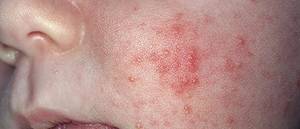

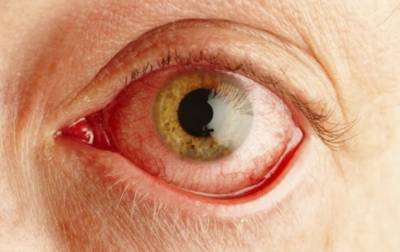
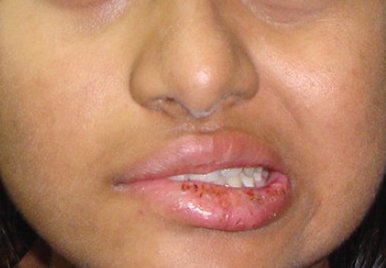


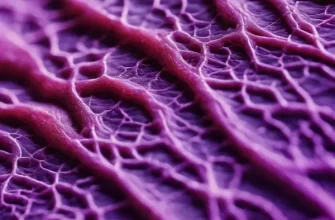
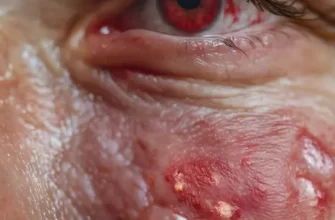


hi im suffering with rash on face there spots but water comes out then it dries up some parts were it flakes off only very slightly can u please tell me or recomend what i need for it or what its called getting really depressed about it has i never suffer with bad face skin conditions thankyou
Hi, Tina
Probably you should pass some test (blood test, etc) which doctor normally arranges. According MD exam and test doctor can find out solution for you. Because skin problem may a sign of other issue with blood, digestive system or internal organs.